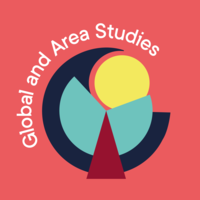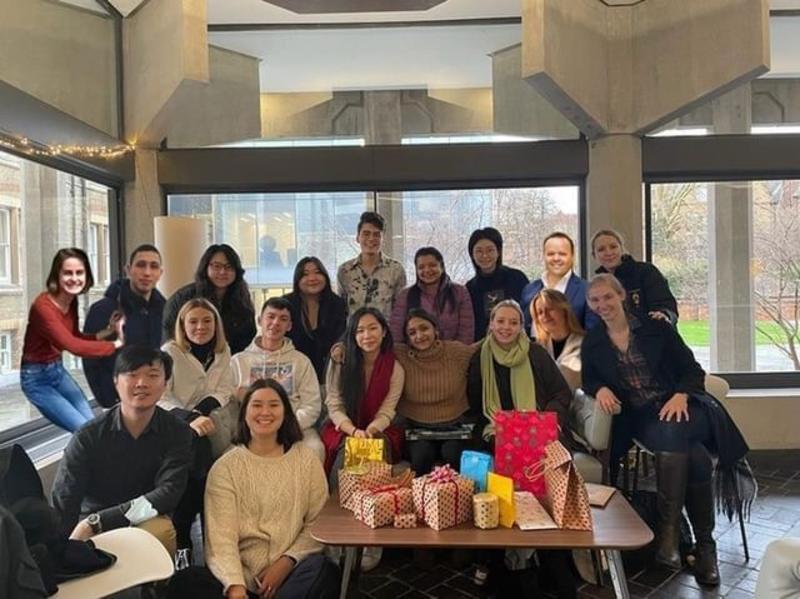MPhil in Global and Area Studies


MPhil in Global and Area Studies
OSGA has now introduced a unique and exciting multi-disciplinary, cross-regional MPhil in Global and Area Studies.
The two-year programme draws on the multidisciplinary and multi-region strengths of the six of the School’s seven regional centres (currently the African Studies Centre only has limited participation), to deliver a unique and innovative programme, which addresses contemporary global challenges through the penetrating lens of Comparative Area Studies.
As the world emerges from the COVID-19 pandemic, the call for a programme like the MPhil in Global and Area Studies has never been louder and OSGA is one of the very few places equipped to deliver.

Supervision
Each student will have one formal supervisor from the beginning of the programme and progress with the thesis will be overseen by the Programme’s teaching committee who will help to facilitate additional consultations where appropriate.
Seminars and Workshops
Throughout the course, students are expected to attend seminars from the rich offering available through OSGA and through St Antony’s College (with whom we work closely).
Programme Management and Enquiries
The GAS Programme Director is Dr Chigusa Yamaura and the programme is supported by the GAS Programme Administrator.
If you have questions about the content of the programme please contact Dr Yamaura. For administrative queries please contact the GAS Programme Administrator.
Applications must be submitted by 12 noon, Tuesday 28th January 2025.
The programme comprises a mix of: core area studies training; comparative area studies courses; research methods training; the chance to take specialist area studies options relating to a particular region; a flexible period of ‘area studies immersion’ supported by a small grant; and – running through its core – an extended research thesis (of 30,000 words) addressing a transnational, or comparative area studies, or theoretical area studies topic.
Summary of Programme:
|
Year of Study |
Element of programme |
Courses |
|
Year One |
One core Area Studies conceptual course |
Competing Approaches in Area Studies |
|
|
One Comparative Area Studies (CAS) course |
Choice from a range of option courses |
|
|
Research Methods |
Qualitative Methods for Area Studies plus ONE of: Quantitative Methods or Historical Methods and Approaches |
|
|
Area Studies courses |
One Area Studies courses from a wide choice of options. |
|
|
Research proposal outlining your thesis plans |
|
|
Year Two |
One core Area Studies conceptual course |
Global and Area Studies Seminar |
|
|
Area Studies courses |
Two Area Studies courses from a wide choice of options |
|
|
Area Studies Immersion |
Study abroad, fieldwork, language course, internship or other. |
|
|
Thesis |
30,000 word thesis |
As a guide to what to expect, you can learn more from the current student handbook.
Please note these options may not be running next academic year.
Ethnic and National Identity Politics
Course convenor: Prof Jacob Ricks
This course explores the politics of ethnic and national identities. This includes an overview of prominent theories of ethnicity and nationalism as well as discussions of how we measure and identify ethnicity. Some course materials treat ethnic and national identities as causal variables, while others treat them as outcomes for explanation. The course will look at how identity boundaries are constructed, how political institutions shape that construction, and how identities can be mobilized. While the course materials will draw on examples from around the world, much of the course discussion will focus on Southeast Asian examples.
Japan and China in Transnational East Asia
Course convenor: Dr Chigusa Yamaura
This course examines various movements of people, images, things, and ideas in an intra-Asian context, with a particular focus on Japan and China. In an increasingly globalised world, it has become increasingly common for individuals to move across national borders - voluntarily or involuntarily - to work, live or marry. These flows are not random, but are patterned by a variety of political, economic, social and historical factors. In addition to looking at how time and space have become compressed as a result of globalising processes, we will explore what forms of inequality shape and result from these movements. We will also examine how historical developments (especially Japanese imperialism), ethnicity, class and gender produce particular flows of people, and how China's economic and social transformations shape and reshape movements within and beyond East Asia. In order to answer these questions, we will look at different scales of analysis, at the level of the state, at the level of societies and, most importantly, at the agency of people.
Militias and the State
Course convenor: Prof Maryam Alemzadeh
This course studies the relationship between non-conventional armed groups and forms of governance. Non-state and parastatal armed groups are responsible for the majority of armed conflicts today. This transformation has been accompanied with a change in the nature of politics; both the forms and the political agenda of nation-states, transnational entities, and parastatal organizations develop in constant interaction with unconventional armed entities. The option covers various aspects of the mutual dependence of non-state armed groups on the one hand, and national, subnational, and global governance on the other. Based on a comparative study of cases from around the globe, it addresses these questions: How does participation in limited forms of conflict, such as civil wars or local rebellions, affect states? What is the role of social identity (sectarian, ethnic, etc.) in the makeup of non-state armed groups? How do rebellious/revolutionary armed groups transition to governance? How do parastatal armed forces influence politics differently from regular armies? How is organized crime related to national and transnational governance? How does the new character of warfare relate to terrorism and global security? And how does the interaction between these civilian and armed entities affect their institutional form and legacy?
Comparative Authoritarianism
Course convenor: Dr Dimitar Bechev
The elective course will consider the politics of authoritarianism worldwide. What distinguishes authoritarian regimes relative to other types of political systems, notably democracy and totalitarianism? What are the subvarieties of authoritarianism and how do they differ from one another in institutional and functional terms? How do authoritarian elites maintain legitimacy vis-à-vis society and choose between co-optation and repression? What explains authoritarian resilience and, respectively, the breakdown of authoritarian orders and the subsequent transition to democracy? How do authoritarian countries behave in the international arena and how do they shape global order? These are some of the issues the course will explore with reference to the vast and growing literature on authoritarianism
Political Myth
Course convenor: Prof Yaacov Yadgar
The course aims to explore the role of the non-rational sphere of human being in politics. To do so, the course will study the role of myths generally and of messianism, eschatology, apocalypse, demonology, hagiography, villainy, sacrifice, and the social unconscious more generally in politics. The course will focus simultaneously on general epistemological, theoretical, and conceptual issues, and on specific political case studies that manifest them.
Sociology of Cybersecurity
Course convenor: Prof Jonathan Lusthaus
Cybersecurity is often seen as a technical discipline, but it also contains a vital human component. People carry out cyber-attacks; people are victims of these attacks; people seek to defend against these attacks. The focus of this course is the social analysis of cybersecurity. While some broad technical terms will be covered, the emphasis will be on the nature, behaviour and organisation of attackers, defenders, and victims. This course will cover cybercrime, hacking and hacktivism, insiders, proxies, and nation state threats, along with cyber policing and the cybersecurity industry, and the users and organisations who fall victim to cyber-attacks. This option paper introduces students to key concepts in cybersecurity, from a sociological rather than technical perspective. This course is global and comparative in its approach, drawing on examples from a range of countries/areas.
Society, Environment and Health
Course convenor: Dr Janey Messina
Students will be given the opportunity to explore timely themes such as climate change, rural-to-urban migration, inequality, and international travel and mobility with reference to human health. Overarching themes include the ways in which society and populations interact with their environment to affect health outcomes, and conversely how global social and environmental changes disproportionally affect different subsets of the populations within and across regions. The course will be taught as a weekly discussion-based seminar. It is structured around 14 overlapping themes to be explored through the term.
The centrepiece of the programme is of course the 30,000-word research thesis, which represents an advanced piece of independent (but supervised) postgraduate research incorporating a Global or Comparative Area Studies approach and/or addressing key cross-region challenges from an Area Studies perspective.
Possible topics of interest include but are not limited to: Global and Regional Health, Migration, Human Rights, the Environment, Democracy and Authoritarianism, International Relations, Political Economy, Social and Economic Inequality. The School has rich multidisciplinary expertise covering China, South Asia, Japan, Latin America, Russia, Eastern Europe and Central Asia, the Middle East (where we share courses with the Faculty of Asian and Middle Eastern Studies) and Africa.
Each student will have one formal supervisor from the beginning of the programme and progress with the thesis will be overseen by the Programme’s teaching committee who will help to facilitate additional consultations where appropriate.
During the second year, you will undertake a period of Area Studies immersion. Immersion options include but are not necessarily limited to: a period of overseas or domestic fieldwork research for your thesis; or for the development of language skills; auditing relevant substantive courses delivered at a partner university or approved alternative; an internship period at a relevant organisation (in the UK or abroad). The immersion period is intended to be flexible and inclusive and should facilitate intensive progress with the research thesis as well as the professional development of the student. Each student will receive a grant to help cover the additional costs relating to the immersion period.
Students of the GAS MPhil programme will progress to a variety of different careers, including in government and diplomacy, business and political analytics, consultancy, banking and finance, NGOs, teaching and further research. With regard to the latter, OSGA’s DPhil in Area Studies, introduced in 2017, provides exciting opportunities for continuing inter-disciplinary doctoral research across one or more of the regions in which OSGA specialises.
The MPhil in Global and Area Studies is assessed using a range of formative and summative assessments. Whilst many OSGA option courses are assessed through three hour written examinations, other elements of the course involve a range of different assessment modalities, including essay, take-home exam and project work.
There are no formal language requirements for the programme beyond the English language requirements which apply to all of OSGA’s programmes. There are some research topics that will require language skills and it is anticipated that students should have those language skills at the point of application. Language isn’t provided within the frame of the programme but there are opportunities for taking language classes through the Oxford University Language Centre and for using the immersion period to further develop language skills, as required.
Students registered for a PhD at another university conducting postgraduate research in Global and Area Studies (with interests in more than one ‘region’ or with interests in the concepts and theories of Area Studies) who want to do research in Oxford without registering for a degree can apply for Recognised Student status.
It is possible to apply to be a Recognised Student for a minimum of 1 term and up to a maximum of 3 terms (or 1 academic year). There is no formal course of study with this status and Recognised Students are responsible for finding their own accommodation in Oxford. Recognised Students may use University libraries and other online resources provided by the University. They can also attend lectures and seminars and can enrol on particular courses, with the permission of the department. Admission is at the discretion of the Global and Area Studies (GAS) Admissions Board, which is responsible for appointing the student’s formal Academic Advisor.
If admitted by GAS, you will be allocated an Academic Advisor, who will give general advice about the research topic, but not systematic instruction, as you are expected to be in receipt of supervision from your home university. Your Advisor may also be able to help you make connections in Oxford and/or identify useful courses to attend. Recognised Students can only expect one feedback on written work related to their thesis from their advisor, since the amount of support available from an advisor will vary according to their availability. Recognised students enrolled on courses will of course receive the same formative and summative assessment (including feedback) as Oxford’s degree students do.
Note, while Recognised Students do not have a formal affiliation with an Oxford College, OSGA is closely associated with St Antony’s College and we will offer you one High Table Dinner per academic term as part of your Recognised Student experience.
GAS charges a fee of £2000 per term for Recognised Students and please note also that Oxford currently charges a £50 application fee.
In order to start the application process, you should contact the GAS Administrator Jillian Fardon and send the following documents:
1. Original transcripts from the degrees you have previously obtained
2. A 500–1000 word statement of your research proposal
3. Two reference letters from senior members of faculty at your current university
4. A letter of application, including the dates you would like to be associated with GAS and with details of any funding that you have secured (source and amount). The letter should explain how you envisage your stay in Oxford contributing to your doctoral study and what resources you aim to consult.
5. Evidence of English language competency (if you intend to apply for a Tier 4 visa; please see specific requirements below)
6. A current C.V.
You should ensure that the start of your stay corresponds with the start date of any particular academic term.
If GAS is able to support your application, and has an Academic Advisor available to provide appropriate supervision during your proposed visit, you will then be asked to complete a formal application (this is the one that costs £50). Full details on this process can be found in the Graduate admissions pages..
It is not possible to be admitted as a Recognised Student if you have already been matriculated as a member of the University of Oxford.
Please note that it is your responsibility to check how long it will take to obtain a Visa in your country and to plan the submission of your application accordingly.
This is a guide for academics who are thinking of applying to become an Academic Visitor at GAS (Global and Area Studies).
As an Academic Visitor of GAS you will be entitled to:
- an Oxford University email address for the visiting period
- limited access to the University computing facilities
- use of the Bodleian Libraries
- attend OSGA seminars and workshops
You can view our current Academic Visitors' profiles here.
Visa
It is the responsibility of the applicant to ensure that compliance with UK immigration and visa requirements are met. Please ensure that you have checked your status with the guidelines on the Home Office UK Border Agency’s website http://www.ukba.homeoffice.gov.uk/visas-immigration/visiting/business/
Oxford University Newcomers' Club
The University of Oxford Newcomers' Club is an organisation, run by volunteers, whose aim is to help the newly-arrived wives, husbands or partners of visiting scholars, of graduate students and of newly appointed academic and administrative members of the University to settle in and to give them the opportunity to meet people in Oxford.
How to apply to become an Academic Visitor of the GAS
Please send:
- a letter of application giving the dates you wish to come of Oxford
- a detailed curriculum vitae
- a research proposal
The above information should be addressed to the Director of the Programme,
Dr Chigusa Yamaura, c/o gas@area.ox.ac.uk
There is a fee payable of £300 per academic term
The University has three terms, called Michaelmas (October-December), Hilary (January-March) and Trinity (April-June). Each term lasts eight weeks.





